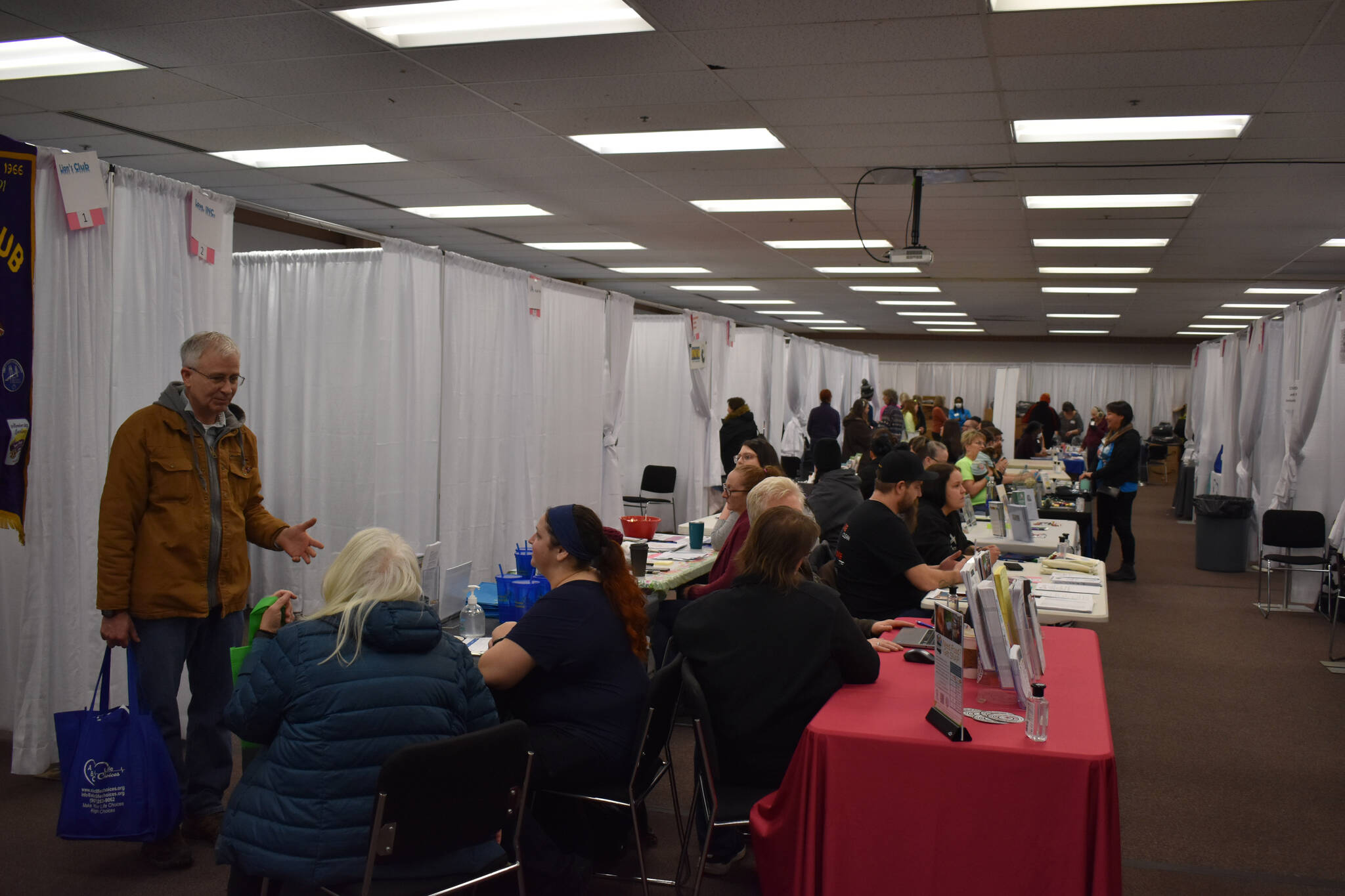More than 60% of the people who participated in January’s Project Homeless Connect event were first-time attendees, according to an event report presented by media liaison Jodi Stuart to the Soldotna City Council during the body’s Wednesday night meeting.
Nearly 100 people participated in this year’s event, which was held Jan. 31 at the Soldotna Regional Sports Complex. The one-day event, held annually on the central Kenai Peninsula, provides dozens of services to people experiencing homelessness, including immunization, legal advice and haircuts.
Stuart said participation this year was higher than last year, but noted that the 2023 event returned to its pre-COVID-19 pandemic format. Services provided through the 2022 Project Homeless Connect event were held at multiple locations around the central Kenai Peninsula.
Project Homeless Connect also serves as an avenue through which data about the peninsula’s homeless population is collected. Among this year’s participants, 16% were veterans, 31 reported having a mental health disorder and 33 reported having a physical disability.
When asked where they slept the night prior to Project Homeless Connect, 25 participants reported staying at their own apartment or house, 24 said they stayed with family or friends and 10 said they stayed at a homeless shelter. Another eight participants said they slept in their vehicle, two said they slept in jail or at an institution and one said they slept on the street.
Those numbers, however, can be misconstrued, Stuart said.
“I can tell you that people believe they have a home that are living in sheds,” Stuart said. “I can tell you that people believe that they have a home and they’re living in their car. So this concept of are you living in a place that’s not habitable? Sometimes that is misconstrued because they themselves view it as their home.”
Among the 34 participants who disclosed a disability, 15 said they struggled with mental illness, 10 reported chronic alcohol or substance use disorder, nine reported a traumatic brain injury and eight reported intellectual or developmental disabilities.
Forty-four participants reported being homeless for more than one year, 32 participants reported being homeless at least twice in the last three years and half of participants reported being a survivor or victim of domestic violence.
When asked about their primary reason for homelessness, nearly half — 48% — fell into an “other” category. Per the event report, the “other” category includes people who could not afford to buy or rent, unemployment, and landlord bankruptcy or death, among other things.
Food, clothing and transportation were the top needs identified by program participants. Among attendees, 33 said they traveled to the event using their own vehicle, 22 said they walked or rode a bike and 19 said a friend of a family member took them.
Stuart said one of her takeaways from the event was a continued need for a cold weather shelter on the Kenai Peninsula. Previous efforts to establish a cold weather shelter, identified as a need on the central peninsula for years, have consistently failed. A homeless shelter opened in Nikiski at the end of 2021, but Stuart says more are needed that provide emergency relief.
Of the roughly 100 people who attended January’s Project Homeless Connect event, 84% said they would use an emergency cold weather shelter if one was available.
“There is, I believe, a place for shelter (where) you come in that night, you are sheltered for that night, you leave during the day, and if you need that shelter again that night, you come back that night,” Stuart said Wednesday. “It is more of that revolving door kind of shelter, that’s kind of that cold weather concept.”
The Kenai Peninsula Foundation and Bridges Community Resource Network, Inc. are sponsoring an event on March 23 from 10 a.m. to 2 p.m. at the Challenger Learning Center to discuss transportation gaps and solutions on the Kenai Peninsula.
Wednesday’s full meeting of the Soldotna City Council can be streamed on the city’s website at soldotna.org.
Reach reporter Ashlyn O’Hara at ashlyn.ohara@peninsulaclarion.com.

